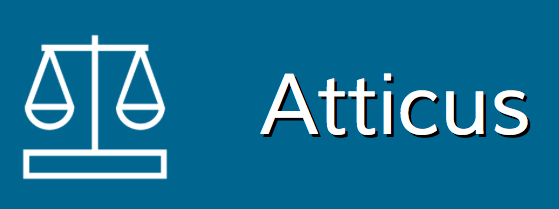

This article was written as a guest post by Nicoleta Uzorka Ion, Justin D. Johnson, Joseph Huang, Richard Clark and Fatiha Zine, who are all members of the winning Atticus team.
The piece follows the Legal Geek conference this Tuesday, which acknowledged the work of the recent ‘Law for Good’ hackathon.
Just as Pro Bono work is part of being a lawyer, a legal hackathon is part of any good law tech gathering such as the Legal Geek Conference (18 October).
After a successful first hackathon in March 2016, Legal Geek challenged hackers, hustlers, coders, lawyers and non-lawyers to find a solution to the lack of access to legal advice and representation in rural areas. The event was hosted by Campus London and kicked off at 6pm on a Friday evening (14 October).
Helen Gazzi of Law for Good, the pro bono arm of Legal Geek introduced the challenge, followed by presentations from Julie Bishop, Director of LCN (Law Centres Network); Jenny Beck from the Law Society’s Access to Justice Committee and Milos Kresojevic from Freshfields, who was part of the first hackathon winning team.
Lack of access to justice is often due to the fact that there are very few law firms outside of big cities and often the firms that are there will represent the local council or a conflicting party in a dispute.
In other cases, the clients are simply unable to physically attend an office miles away from their home. Due to Legal Aid cuts the situation is even worse for those lacking access to funds.
However, many of these problems can be solved through technology, by linking up rural communities with lawyers and legal advisors across the UK, not just those in their local area, and then by offering independent advice to those in need.
Seven teams set themselves the task of designing, planning and developing a web-based working model of their solutions, all of which had to be completed within 24 hours.
A range of innovative ideas were put forward, from chat-bots (Sue Legal), to online case management systems (Autto, AdvoAble, Atticus) and legal document automation tools (Ashurst).

Not surprisingly given the need in that area at the moment all teams chose to run test cases based on housing related problems.
The solutions directed the clients through the various stages of establishing what their legal problem was, checked for their Legal Aid status and offered different types of self-help such as videos, brochures, other websites.
All proposals included functions enabling an advisor to remotely evaluate the client’s case and provide advice, including facilities to easily upload documents to a digital case file, plus online facilities to allocate or re-allocate cases to different legal advice providers.
The race concluded with presentations by all teams that were recorded and sent to a panel of tech and legal experts.
On Tuesday evening this week, four of the teams pitched their solutions at the Legal Geek Conference and judges from the Law Society, Thomson Reuters and Freshfields had to make a hard choice.
Sue Steer, Thomson Reuters, who announced the results, commented that all solutions were remarkable in terms of ease of use and their incorporation of elements for collaboration and case management.

Team Atticus (Justin D. Johnson, Joseph Huang, Richard Clark, Nicoleta Uzorka Ion and Fatiha Zine) were chosen as winners due to the ambit of the solution offered, with the AdvoAble team coming a close second.

Functional examples of some of the A2J solutions developed during the hackathon can be accessed at:
[Artificial Lawyer is keen to cover #A2J initiatives with a technology solution, especially where automation, machine learning or natural language processing are used. Drop me a line if you have a story you’d like to share.]